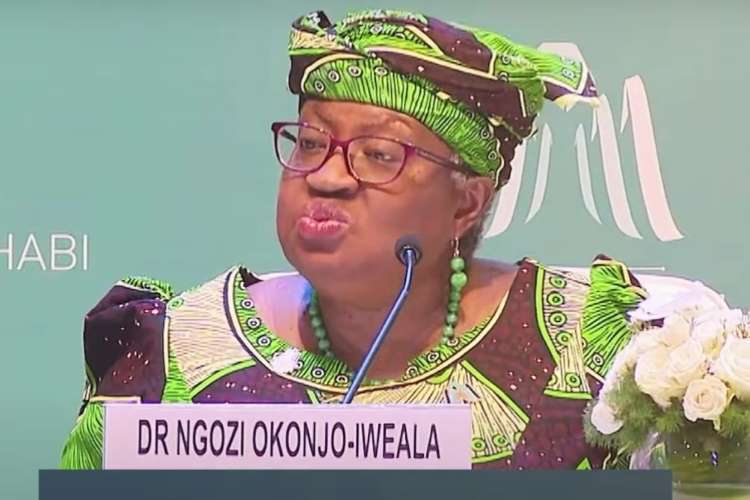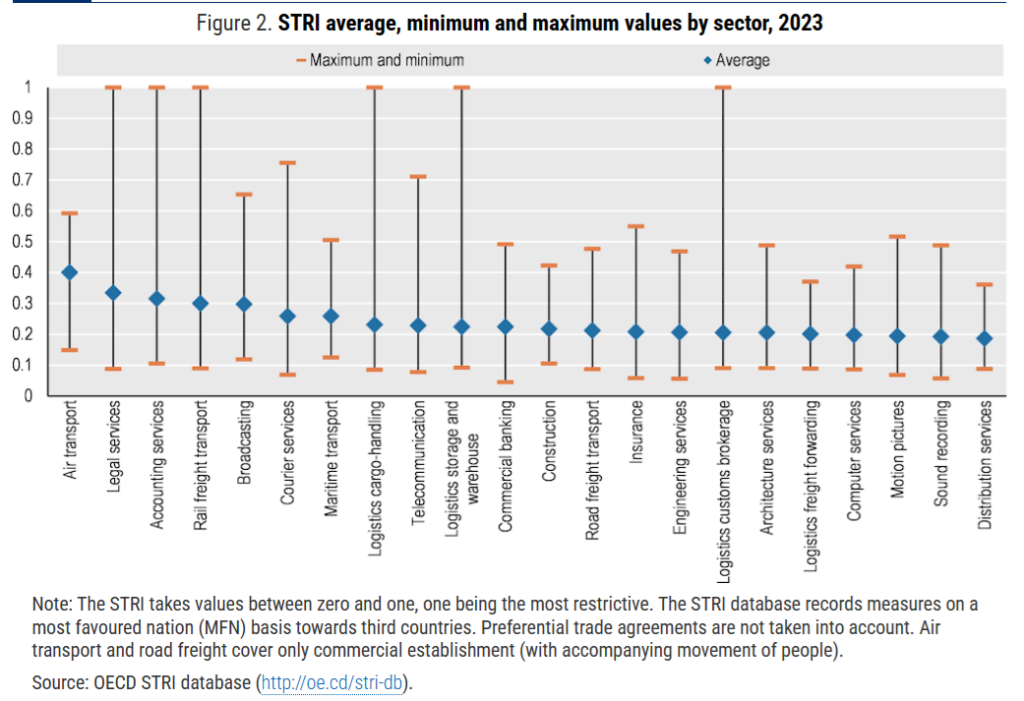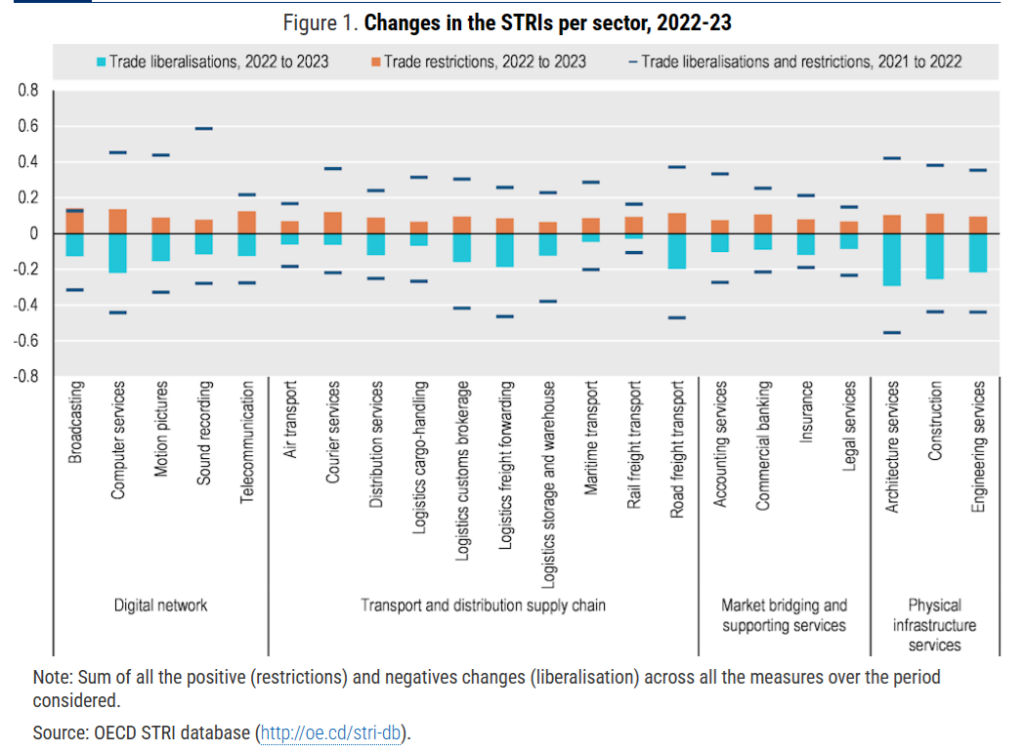
The WTO ministerial meeting concluded on Friday in Abu Dhabi with a resolution that marked the continuation of the status quo in digital trade, but also underscored the complex challenges the WTO faces in trade diplomacy. The agreement reached to extend the moratorium on e-commerce tariffs for another two years, until the 14th ministerial conference, represents a delicate balancing act.
The agreement, a critical piece of the digital economy puzzle, has been a contentious issue, particularly for countries like India and South Africa which have voiced concerns over its implications on developing economies and the dominance of big tech companies. The decision, following intense negotiations and at the behest of the UAE trade minister, underscores the WTO’s ability to achieve consensus, albeit on an issue that maintains the status quo rather than breaking new ground.
The extension of the moratorium signals the acknowledgment of the role of digital economy in global trade. This decision at WTO ministerial sets the stage for a deeper examination of the impact of digital commerce. As digital trade continues to erase traditional borders, the economic implications of this moratorium stretch far beyond tariff revenues, touching on issues of market access, competition, and the digital divide between nations. The challenge ahead for the WTO is to navigate these waters with a policy framework that promotes inclusivity and fairness in the digital era, ensuring that the benefits of e-commerce are widely distributed and support sustainable development across all regions.
READ I India’s textile industry braces for EU’s aggressive sustainability push
WTO ministerial witnesses big power rivalry
This outcome also exposes the broader challenges faced by the WTO, an organisation grappling with rising protectionism, the contentious use of subsidies by major global powers such as the US and China, and the struggle to adapt its rules to the modern digital economy. The continuation of the e-commerce tariff moratorium, while a relief to many governments and businesses, also highlights the ongoing dilemma of balancing the interests of developed and developing nations in the digital age.
The dynamics within the WTO are significantly influenced by the policies and postures of its two largest members, the United States and China. Their approaches to international trade, often marked by a blend of cooperation and contention, play a major role in shaping the organisation’s agenda and the broader discourse on global trade governance. As the WTO grapples with issues of rising protectionism and the equitable regulation of subsidies, the interplay between these two global powers influences the complex geopolitics of trade. Finding a consensus in this context requires not only diplomatic finesse but also a willingness to engage in constructive dialogue that respects the diverse economic interests of all WTO members.


The WTO ministerial conference also highlighted the organisation’s evolving membership, with the formal joining of Comoros and Timor-Leste, and the decision to allow least developed countries to retain benefits for three years after graduation. These agreements underscore the importance of the WTO as a platform for inclusive global trade. For new and graduating LDC members, the complexities of the global trading system pose both challenges and opportunities. The WTO’s support for these countries is crucial in ensuring their successful integration into the global economy, promoting sustainable development, and enhancing the overall resilience of the international trade architecture.
The conference was also marked by disagreements that reflect deep-seated divisions within the WTO’s membership. Notably, the inability to reach consensus on limiting subsidies for overfishing and addressing agricultural policies exposes the complexity of aligning diverse national interests with global trade rules. The clash between Brazil and India over agriculture policy, and the contention surrounding India’s stockpiling practices, illustrate the challenges of negotiating agreements that are equitable and sustainable for all members.
Achieving consensus among WTO members remains one of the most daunting challenges. The wide array of economic interests, levels of development, and strategic priorities present in the forum complicates the pursuit of agreements that are equitable and beneficial for all. This diversity necessitates a high degree of diplomacy and the ability to forge compromises that respect the unique needs and aspirations of over 160 member countries. The essence of the WTO’s success lies in its capacity to navigate these differences, fostering a spirit of cooperation that can lead to meaningful progress in addressing the pressing issues of global trade.
The negotiations at the WTO ministerial also showcased some innovative approaches to diplomacy, with the adoption of “interest-based negotiation” techniques leading to more collaborative discussions. This approach, emphasising listening and creative problem-solving, represents a potential paradigm shift in how the WTO operates, fostering a more cooperative and less adversarial atmosphere. However, the abrupt removal of a key facilitator of these talks, and external political pressures, highlight the fragile nature of progress in international diplomacy.
For India, the outcomes of the WTO ministerial conference are a mixed bag. On the one hand, the extension of the e-commerce moratorium is indicative of India’s pragmatic approach to international negotiations. Commerce and industry minister Piyush Goyal’s reaction to the conference’s results reflects India’s ability to protect its interests, particularly in agriculture and fisheries, areas of critical importance to the country’s economy and food security.
India’s stance on the e-commerce moratorium, shifting from opposition to acceptance, suggests the recognition of the need for further discussions on its impact. This pragmatic approach, coupled with India’s successful defence of its policies on agriculture and fisheries, underscores the country’s growing influence and strategic diplomacy in global trade discussions.
India’s resistance to the inclusion of non-trade issues such as investment facilitation, environment, and labour in the WTO agenda highlights its commitment to maintaining the organisation’s focus on trade-related matters. This stance reflects India’s broader strategy to ensure that its developmental objectives are not compromised by the inclusion of issues that could dilute its policy autonomy.
India’s role in the recent WTO ministerial exemplifies strategic diplomacy at work. Through skilful negotiation and the formation of alliances with other developing nations, India has significantly enhanced its influence within the WTO. India is poised to leverage this position to champion reforms that more accurately reflect the needs and interests of developing countries. By advocating equitable trade rules, particularly in the realms of digital commerce, agriculture, and fisheries, India looks to ensure that global trade frameworks support the development objectives of all nations, fostering a more inclusive and sustainable international trade environment.
The outcomes of the WTO ministerial conference in Abu Dhabi offer a mix of continuity and cautious optimism for the future of international trade negotiations. For India, the conference was an opportunity to assert its interests and demonstrate its diplomatic acumen. Looking ahead, the challenge for India and other WTO members will be to navigate the evolving landscape of global trade, balancing national interests with the collective goal of a fair and equitable trading system.
As the digital economy continues to grow and new challenges emerge, the WTO’s ability to adapt and innovate will be critical. For India, the lessons learned and the strategies employed at this conference will undoubtedly inform its approach to future trade negotiations, as it seeks to safeguard its economic interests while contributing to the broader objectives of the global trading system.
